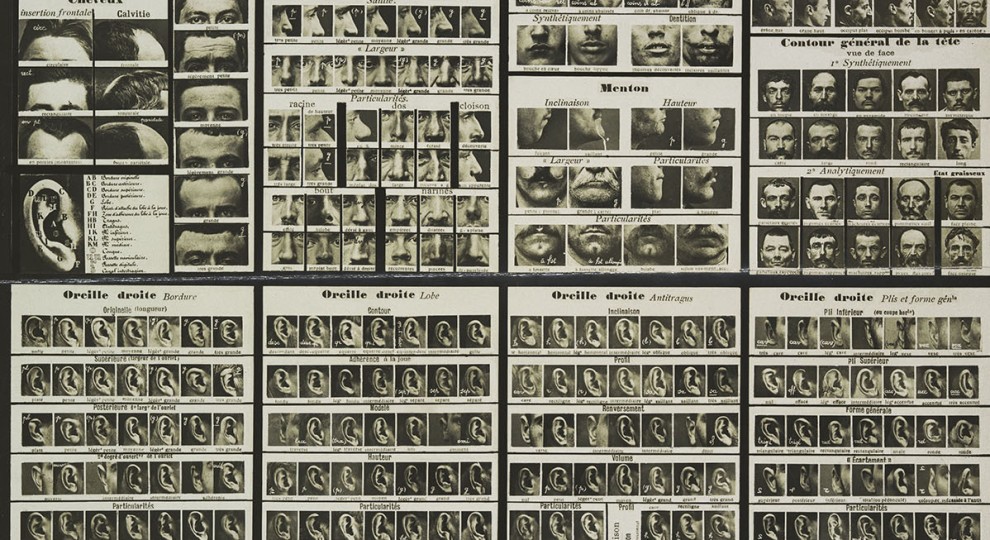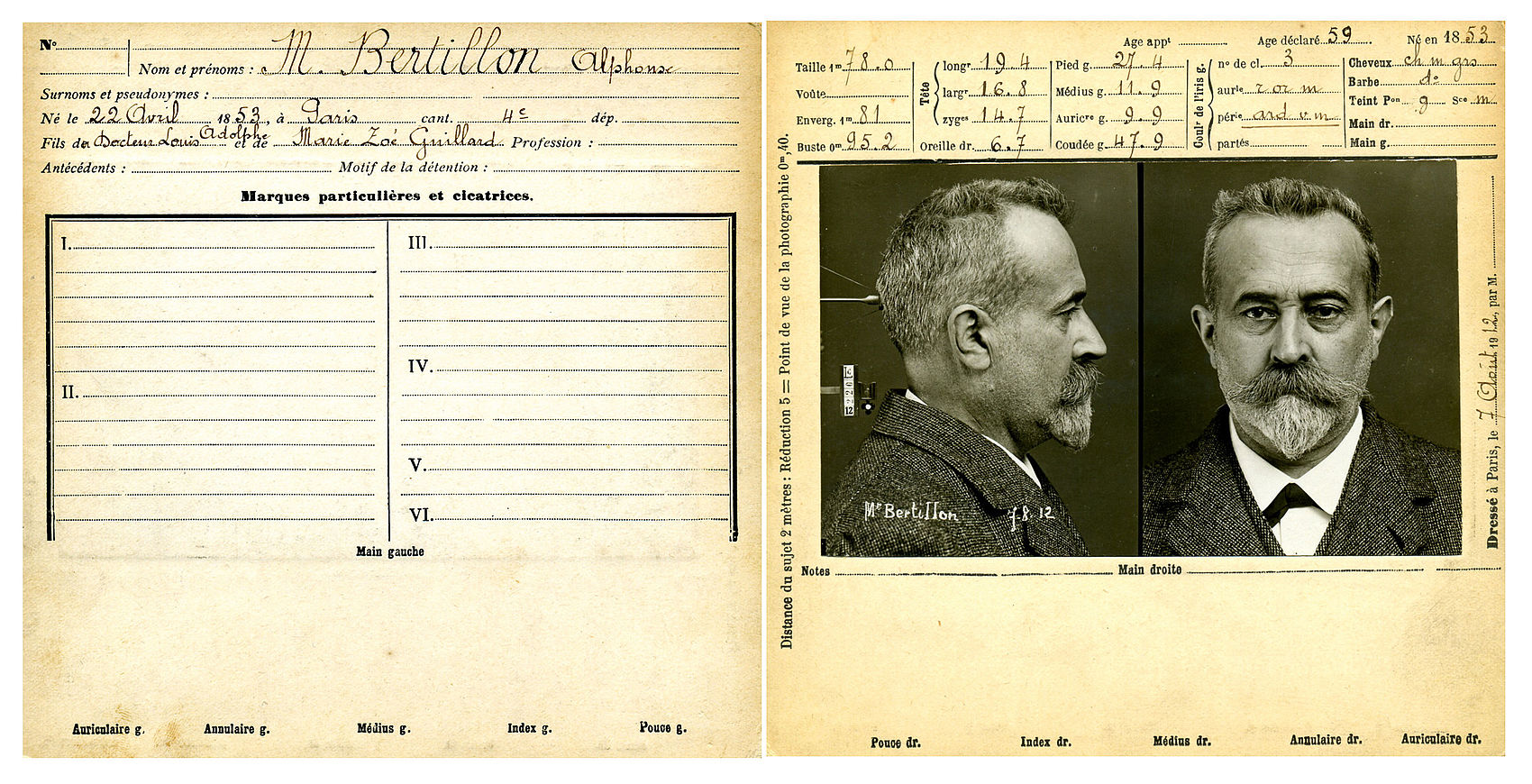
Forensic investigator, French police officer and biometrics researcher Alphonse Bertillon (1853-1914) leaves behind a record that is simultaneously one of achievement and one that serves as a warning in our new era of digital biometrics.
The son of a statistician, Bertillon's great achievement was the invention of the modern mug shot. The Bertillon system standardized the technique for taking mug shots, with one side-view photo, and one front-view. An example is seen below in this mug shot of Bertillon himself.

Bertillon's mug shots revolutionized police work and reportedly helped Parisian police identify 241 repeat offenders. Even today, mug shots are taken according to Bertillon's system. He was lionized in his time and recently featured in an exhibition at the Metropolitan Museum of Art, Crime Stories: Photography and Foul Play.
Bertillon outlined his system in his book Identification Anthropométrique (1893) under which body measurements were rendered into a formula that referred to a single unique individual, and recorded onto cards with mug shots. The cards were carefully filed and cross-indexed, so they could be easily retrieved by police detectives. By standardizing a biometric identification system, Bertillon made detective work easier and more effective.
Yet Bertillon also left a troubling legacy. First, he believed his mug shots and eleven different anthropometric measurements offered data from which could be surmised 'degenerate character' types. Second, confident in his abilities to draw scientific insights from biometric 'data', he was a prosecution witness in France's scandalous Dreyfus affair. Bertillon served as a handwriting expert and claimed that Alfred Dreyfus had written an incriminating document. His flawed testimony was apparently a significant contributing factor in the innocent Dreyfus's sentencing to life imprisonment on Devil’s Island.
In the context of our current era of increasingly pervasive biometric identification and the "quantified self," Bertillon's career serves as a reminder both of the high efficacy of such methods, and the disastrous results that can occur when too much confidence is placed in biometric data. Whether it be mistaken corroboration based on faulty DNA evidence, China's biometric-based 'social credit' system, or even the mistaken outing of an extramarital affair thanks to Facebook's facial recognition, the potential for Orwellian catastrophes ruining individual lives is high even with biometric systems created with the best intent. When it comes to knowledge created from forms of a biometric nature, the greatest caution appears to be warranted.